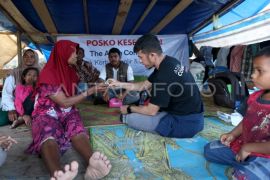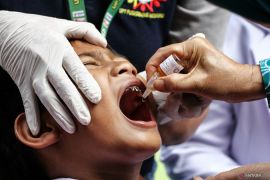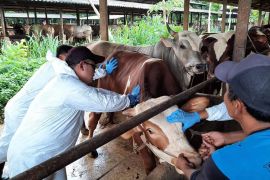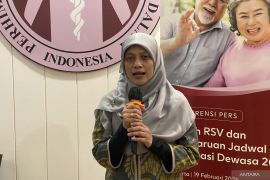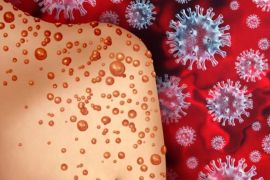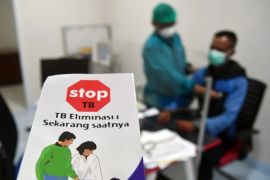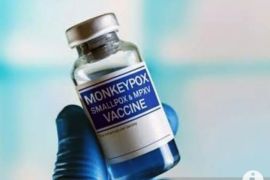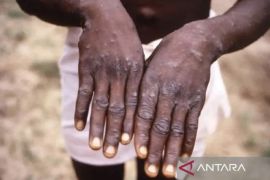Prior to the HAN commemoration, celebrated every July 23rd, the Health Ministry had issued Circular Letter Number HK.02.02/I/1727/2021 on the third phase of vaccination for vulnerable people and general public as well as vaccination for children in the age group of 12-17 years.
The letter, dated June 27, 2021, approves the usage of PT Bio Farma-Sinovac’s COVID-19 vaccine for children aged 12-17 years in accordance with the suggestion from the Indonesian Technical Advisory Group on Immunization (ITAGI) and National Agency of Drug and Food Control (BPOM).
The decision was taken according to the research conducted by BPOM, ITAGI, COVID-19 Vaccine Evaluator National Committee, and Indonesian Pediatric Association (IDAI).
The BPOM has vowed to always monitor the safety, efficacy, and quality of the vaccines, as quoted from the agency’s official website.
How safe are COVID-19 vaccines for children?
The IDAI has offered several recommendations on providing COVID-19 vaccination to children and teenagers.
The first recommendation is to accelerate vaccination for children using inactivated COVID-19 vaccines manufactured by PT Bio Farma-Sinovac. The vaccines have been available in Indonesia and cleared the first and second clinical trial phases. The trials show the vaccines are safe and have high seroconversion.
Next, based on the precautionary principle, the vaccination should be given only to children aged 12-17 years, considering the adequate number of clinical trial subjects, frequency of mobility, high possibility of having outdoor gatherings, as well as ability to express any vaccine adverse event/adverse event following immunization (AEFI).
Furthermore, 0.5-ml vaccine dosages should be injected into the upper arm deltoid muscle twice within a one-month interval.
Meanwhile, vaccination for children in the age group of 3-11 years is yet to be conducted, pending research result with adequate number of test subjects to determine the dosage and ensure the reliability of the vaccine.
The consideration also includes the results of first and second clinical trial phases of Sinovac’s CoronaVac vaccines among children in the age group of 3-17 years with randomized, double-blinding and placebo-controlled methods in Zanhuang, China.
Regarding the safety of the vaccines, the AEFI had been found in 26-29 percent of the subject groups that was insignificantly different with placebo-controlled groups (24 percent) amid the first and second clinical trial phases within a 28-day interval.
The most adverse event found was mild to moderate pain at the injection site among 13 percent of the recipients.
Meanwhile, only one severe vaccine adverse case was found. However, it was not related to the vaccination.
Furthermore, several cases of fever were reported in children aged 3-11 years followed the vaccination, whereas those aged 12-17 years reported pain at the injection site, though no fever was recorded.
“Conducting disciplined health protocols and accelerating vaccination for adults and children, especially teenagers with high mobility, are required to curb the reciprocal pandemic transmission between adults and children,” the IDAI emphasized.
Parents can also protect their children by ensuring that learning and playing activities are homebound as well as keeping them away from crowds.
Related news: 548,000 Indonesian children get COVID-19 vaccine jabs:Health Ministry
Related news: Limited stocks, technical production impact vaccine distribution
How to get vaccination for children?
The government has set procedures for the public to access vaccination for children in the age group of 12-17 years. The participants have to:
1. Get permission from their parents;
2. Be included in the teenager group age in PCare apps;
3. Print the pre-screening form;
4. Bring the family register (KK) containing their residential identification number (NIK);
5. Bring their own pen;
6. Get vaccinated with 0.5-ml doses of Sinovac twice during a 28-day interval;
7. Pass screening, vaccination, and observation phases -- similar to procedures followed for people aged 18 years and above.
Immunization recommendation amid the enforcement of Emergency Public Activity Restrictions (PPKM)
Regarding immunization amid the enforcement of PPKM, the IDAI has several suggestions.
“Routine immunization in high-priority PPKM areas should be postponed for three weeks, starting on July 3, 2021, except for immunization to newborn babies, comprising hepatitis B and the first dose polio,” the IDAI noted in its official statement.
Amid the absence of immunization activity, parents are suggested to check their children’s immunization progress on their Mother and Child Health (KIA) cards and take notes of missed vaccination due to the enforcement of PPKM. The missing dose should be given soon after the restriction ends.
Meanwhile, the areas with less restriction are still able to conduct immunization with strict health protocols.
The IDAI urges children to stay at home, except for urgent matters, such as serious health problems. They are required to comply with the health protocols amid this pandemic and thereafter.
“May we be able to pull through this pandemic,” the IDAI stated.
Related news: Children should stay spirited despite homebound activities: President
Related news: State Budget supports development of children to fulfill dreams
Translator: Arnidhya Zhafira, Uyu Liman
Editor: Sri Haryati
Copyright © ANTARA 2021


